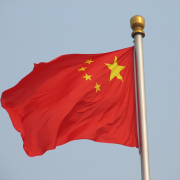India’s agro chemicals industry can survive coronavirus headwinds to some extent in the near term, but businesses will face significant pressures as inventories run down, Crisil said in a report on last Thursday.
“…Overall, that would eventually result in more sectors being negatively impacted, outweighing the positives. Credit profiles of firms in select sectors could also get impacted if the supply disruption continues beyond March,” it said.
The fourth quarter of fiscal 2020 will show a mixed impact of the virus. “But if it persists, Indian industry is heading for serious disruptions,” it added.
On a brighter note, sectors that are highly dependent on imports from China are expected to aid Indian domestic manufacturers.
“The fact is, other countries including India do not potentially have the scale or size to take material advantage of the opportunities available due to disruption in Chinese supplies. It could take significant resources and time to set up additional capacities, by which time China itself might re-commence production,” Crisil said.
India’s agriculture sector will see a negligible impact as most of the raw material, such as pesticide, for the crop year 2019-20 had taken place by November-December. India imports 50% of its raw material (technical) pesticides requirement from China. “In case of fertilisers, while ~10% urea is imported from China, it is produced in the Middle East and traded by China. Therefore, we do not see a significant impact of n-CoV and shutting down of chemical plants, in the fourth quarter of this fiscal,” Crisil said.
However, if the outbreak is not contained beyond that, imports for the next season will be impacted. In case of crops such as soybean, India depends on China by way of export of soy meal. But since a large part of the commodity has been harvested and already sold, the virus outbreak is not expected to impact farmers much. Some downward pressure on margins of soy millers might be seen in the near term, though, due to lower soy meal exports.
Consumer durables industry will feel the heat in March as inventory for the sector is typically around two months. This will lead to negative impact by end of fourth quarter this fiscal, and a possible increase in product prices.
The epidemic will have a knock-on effect in the world economy and disrupt global supply chains if not contained quickly. China is the world’s second largest economy and a major trade partner for many countries, including India.
Export-import trade between India and China, including Hong Kong, was $115 billion in calendar 2019.
Source: Agropages


